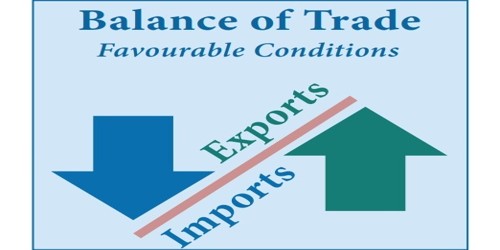
Welcome to our comprehensive guide on property management, designed to provide essential tips for landlords and investors in the real estate industry. Effective property management is crucial to ensuring the profitability and success of your real estate investments. Whether you're a seasoned landlord or a new investor, this guide will provide valuable insights to help you manage your properties more efficiently.
In this guide, we'll cover a range of topics including understanding the real estate market, finding and evaluating investment properties, effective marketing and tenant screening, essential maintenance and repairs, rental property legalities, financial management and record keeping, dealing with difficult tenants, and exit strategies for selling properties. By following the tips and advice provided in this guide, you'll be better equipped to navigate the complexities of property management and maximize your returns on investment.
Key Takeaways:
- Effective property management is crucial for the profitability and success of real estate investments.
- Understanding the real estate market trends and dynamics is important for making informed decisions as a landlord or investor.
- Working with a real estate agent and utilizing property listings can help you find profitable investment opportunities.
- Thorough due diligence and assessing potential returns on investment are important when buying a home as an investor.
- Effective marketing and tenant screening can help attract quality tenants and maximize rental income.
Understanding the Real Estate Market
As a landlord or investor in the real estate industry, understanding the current trends of the real estate market is crucial in making informed decisions. In this section, we'll explore the factors that can impact property values and how to stay informed about market conditions.
The Current Real Estate Trends
Keeping track of the real estate trends is essential to making informed decisions. At present, the market is experiencing a high demand for single-family homes and a shortage of inventory. This trend has resulted in an increase in home prices, particularly in suburban and rural areas.
Another trend is the shift towards remote work, which has led to an increase in demand for homes with dedicated office spaces and outdoor areas. This trend is expected to continue in the foreseeable future, making homes with these features highly desirable to potential buyers and renters.
Other factors that can influence the real estate market include interest rates, government policies, and economic conditions. These variables can lead to fluctuations in the market, which can significantly affect property values. Thus, it's essential to keep an eye on these factors to make informed decisions.
Staying Informed
One of the best ways to stay informed about the real estate market is to work with a real estate agent who has their finger on the pulse of the industry. They can provide you with up-to-the-minute insights into current market conditions, advise you on when to buy or sell, and guide you through the buying or selling process.
Another way to stay informed is to follow real estate news and updates. This way, you can keep track of market trends and changes and learn from experts in the industry. Attending real estate conferences and seminars can also provide valuable insights into the market.
In conclusion, staying informed about the real estate market is crucial to making informed decisions as a landlord or investor. Understanding current trends can help you identify profitable opportunities, assess risks, and make strategic moves that can maximize profitability.
Finding and Evaluating Investment Properties

Real estate investment can be a lucrative venture, but finding the right investment property can be a challenge. In this section, we'll discuss strategies for finding profitable opportunities and evaluating them to make informed investment decisions.
Utilizing Property Listings
One of the easiest ways to find investment properties is by utilizing online property listings. Websites like Zillow and Redfin provide extensive databases of properties for sale, including detailed descriptions and photos. These platforms allow you to filter properties by various criteria, such as location, price, and property type, making it easier to find properties that meet your investment goals.
When evaluating properties on these sites, be sure to pay attention to any additional costs associated with the property, such as maintenance fees or property taxes. These expenses can significantly impact your overall return on investment.
Working with a Real Estate Agent
Another option for finding investment properties is by working with a reputable real estate agent who specializes in investment properties. These professionals have access to off-market properties and can provide valuable insights on market trends and investment opportunities.
When selecting a real estate agent, be sure to choose someone with extensive experience and knowledge of the local real estate market. A good agent should be able to provide data on recent sales, rental trends, and investment returns in the area.
Evaluating Investment Properties
Once you've identified potential investment properties, it's essential to evaluate them thoroughly before making an offer. Here are some key factors to consider:
| Factor | Description |
|---|---|
| Location | The property's proximity to amenities such as schools, shops, and transportation can significantly impact its potential for rental income and appreciation. |
| Condition | The property's overall condition, including any necessary repairs or upgrades, can affect its value and potential return on investment. |
| Rental Income | Consider the property's current rental income and potential for future increases based on market trends and property improvements. |
| Expenses | Take into account all expenses associated with the property, including maintenance costs, property taxes, and insurance. |
By carefully evaluating investment properties and utilizing the right resources, you can increase your chances of finding profitable opportunities and achieving success in real estate investment.
Tips for Buying a Home as an Investor
Investing in real estate can be a lucrative venture, but it requires careful planning and execution. As an investor looking to buy a home, there are several tips you should keep in mind to ensure a successful investment.
Determine Your Investment Strategy
Before you start searching for properties, you should determine your investment strategy. Are you looking to flip the property for a quick profit, or are you planning to hold onto it as a long-term rental? The answer to this question will impact your selection criteria and the financing options available to you.
Conduct Thorough Due Diligence
It is essential to conduct thorough due diligence before making an offer on a property. This includes researching the neighborhood, analyzing comparable sales, and reviewing the property's financials. You should also consider hiring a professional home inspector to identify any potential issues with the property.
Negotiate Favorable Terms
As an investor, you should always aim to negotiate favorable terms when purchasing a property. This includes the purchase price, closing costs, and financing options. You should also try to negotiate a contingency clause in the contract that allows you to back out of the deal if certain conditions aren't met.
Assess Potential Returns on Investment
Before making an offer, you should assess the potential returns on investment. This includes calculating the property's cap rate, cash-on-cash return, and potential rental income. You should also consider the potential for appreciation in the property's value over time.
Secure Financing
Once you have identified a property and negotiated favorable terms, you will need to secure financing. As an investor, you may have access to several financing options, including traditional mortgages, hard money loans, and private lenders. It is essential to consider the pros and cons of each option and choose the one that best fits your investment strategy.
Conclusion
By following these tips, you can increase your chances of success when buying a home as an investor. Remember to conduct thorough due diligence, negotiate favorable terms, and assess the potential returns on investment. With proper planning and execution, your investment in real estate can yield significant returns over time.
Effective Marketing and Tenant Screening

One of the most important aspects of property management for landlords is finding and attracting quality tenants. Effective marketing strategies and thorough tenant screening can help ensure that you have reliable tenants who will take care of your property and pay rent on time.
Marketing Your Property
When it comes to marketing your rental property, it's important to highlight its key features and benefits. These may include its location, amenities, and any unique selling points that make it stand out from other rental properties in the area. Consider using high-quality photos and detailed descriptions to showcase your property and attract potential tenants.
Tip: Use online rental listing websites, social media, and other marketing channels to promote your property to a wider audience.
Screening Potential Tenants
Once you start receiving applications from potential tenants, it's important to conduct a thorough screening process to ensure that you select reliable tenants who will take care of your property and pay rent on time. A screening process may include collecting information on a tenant's rental history, employment status, and credit score.
You may also want to consider conducting background checks to ensure that your potential tenant has a clean criminal record. This can help protect you, your property, and your other tenants.
Maximizing Rental Income
Another important aspect of effective property management is maximizing your rental income. This may include setting competitive rental rates that are in line with market trends, as well as conducting regular market research to ensure that your rates remain competitive.
You may also want to consider offering incentives to attract potential tenants, such as waived move-in fees or discounted rent for the first month. These incentives can help attract quality tenants and keep your property occupied.
Essential Maintenance and Repairs
As a landlord, it's important to prioritize regular maintenance to ensure that your property remains in good condition for tenants. Proactive maintenance can prevent small issues from turning into bigger, more expensive problems down the line. Here are some essential maintenance and repair tasks for landlords to consider:
Regular Inspections
Schedule regular inspections to check for any issues with the property, such as leaks, pests, or damage to appliances. This can help you stay ahead of any potential problems and address them promptly. Make sure to communicate with your tenants about the inspections and provide ample notice before entering the property.
Proactive Maintenance
Performing regular maintenance tasks, such as cleaning gutters, replacing air filters, and inspecting HVAC systems, can help prolong the lifespan of your property's systems and appliances. This can save you money in the long run and prevent inconvenient breakdowns or repairs for your tenants.
Addressing Tenant Requests Promptly
If your tenant reports an issue with the property, such as a leak or malfunctioning appliance, it's important to address the request promptly. Timely repairs can prevent further damage to the property and maintain positive relations with your tenants.
| Types of Repairs | Responsibility |
|---|---|
| Minor repairs such as clogged sinks or leaky faucets | Landlord |
| Major repairs such as structural issues or HVAC problems | Landlord |
| Repairs caused by tenant negligence or misuse | Tenant |
It's important to establish clear guidelines for repairs and maintenance in the lease agreement to avoid any confusion or disputes.
By prioritizing essential maintenance and repairs, landlords can ensure that their property remains in good condition and provides a safe and comfortable living environment for tenants.
Understanding Rental Property Legalities

When it comes to renting out a property, there are many legalities that landlords must be aware of. Understanding these legal requirements is essential to ensuring a smooth and successful rental experience for both landlords and tenants.
Lease Agreements: A lease agreement is a legally binding contract between a landlord and tenant that outlines the terms and conditions of the rental agreement. It's important to ensure that the lease agreement is clear and thorough to avoid any misunderstandings or disputes. Make sure to include details such as rent amount, payment due dates, security deposit requirements, pet policies, and any restrictions on property use.
Tenant Rights: Tenants have specific rights when renting a property, and it's important for landlords to understand and comply with these rights. These can include the right to a safe and habitable living space, the right to privacy, and the right to be free from discrimination.
Eviction Procedures: While eviction is often a last resort, it's important for landlords to know the proper procedures to follow if they need to evict a tenant. This can include providing written notice, following state and local laws, and going through court proceedings if necessary.
Complying with Local Regulations: Landlords must comply with local regulations and laws regarding rental properties. This can include obtaining necessary permits and licenses, maintaining the property up to code, and following zoning rules.
Tenant Screening: Protecting yourself and your Property
One of the most important aspects of property management is tenant screening. Proper screening can help landlords avoid problem tenants and protect their property.
Background Checks: Conducting thorough background checks is essential for verifying a potential tenant's employment, rental history, and credit score. This information can help landlords make informed decisions about renting to a particular tenant.
Proper Documentation: Landlords should keep proper documentation of tenant screening and rental agreements. This can include copies of background check reports, lease agreements, and move-in inspection reports.
"Proper screening can help landlords avoid problem tenants and protect their property."
Using Property Management Software: Property management software can assist landlords in tenant screening by organizing and storing tenant information, providing screening tools, and streamlining the rental application process.
In Conclusion
Understanding rental property legalities and tenant screening is crucial for successful property management. Landlords must stay up to date on current laws and regulations, and take steps to protect their property and investments by properly screening potential tenants.
Financial Management and Record Keeping
Effective financial management and record keeping are crucial for landlords and investors to succeed in the real estate industry. Without proper budgeting, expense tracking, and reporting, it can be challenging to maximize the profitability of your properties. Here are some essential tips for financial management and record keeping:
Budgeting
Creating a budget for your rental property is critical to ensure that your expenses do not exceed your income. Start by documenting your monthly income from rental payments, and then list all of your monthly expenses, including property taxes, insurance, maintenance, repairs, and any other costs.
Once you have documented all your expenses, try to identify areas where you can minimize costs without sacrificing property quality or tenant satisfaction. Review your budget regularly and adjust it as needed to ensure that your rental property remains financially viable.
Tracking Expenses
Tracking your expenses accurately is essential for tax purposes and financial management. You can use a spreadsheet or software to track all your expenses and categorize them accordingly, such as maintenance and repairs, property improvements, insurance, and utilities.
Make sure to save all your receipts and invoices, as these are essential documents that support your expense claims. Regularly review your expense reports and ensure that all entries are accurate and up to date.
Maximizing Profitability
To maximize the profitability of your rental property, you need to understand your cash flow. Knowing when your income is coming in and when your expenses are going out can help you identify opportunities to increase your rental income and reduce expenses.
Consider implementing strategies such as renovation projects or raising rent rates to increase your rental income. You may also want to consider refinancing your mortgage or negotiating better insurance rates to reduce your expenses.
Reporting
Regular financial reporting is critical to staying on top of your rental property's financial health. Analyze your income and expenses regularly and generate financial reports that show your net income, cash flow, and any outstanding balances.
Keep a record of all financial reports, and use them to identify financial trends and make informed business decisions. Accurate reporting is also essential for tax purposes and can help you avoid legal issues related to financial compliance.
Dealing with Difficult Tenants
Being a landlord comes with its fair share of challenges, one of the most significant being dealing with difficult tenants. It's important to address any tenant issues promptly and effectively while still following all legal guidelines.
Effective Communication
One of the key strategies for dealing with difficult tenants is effective communication. It's essential to remain calm and professional, even when faced with challenging situations. Listen to the tenant's concerns and try to find a mutually beneficial solution. If the tenant is uncooperative or hostile, it's best to involve legal counsel and follow the proper procedures for resolving the issue.
Conflict Resolution
When conflicts arise, it's important to handle them appropriately. Encourage tenants to communicate directly with you to resolve any disputes. If necessary, consider hiring a mediator to help facilitate a resolution. Be sure to document any conflicts and resolutions in writing to protect yourself in case of legal action.
Legal Recourse Options
It's important to understand your legal options when dealing with difficult tenants. Familiarize yourself with local landlord-tenant laws and regulations to ensure that you are following the proper procedures. If a tenant violates the terms of the lease or fails to pay rent, you may be able to pursue legal action, including eviction proceedings. However, it's important to proceed with caution and follow all legal guidelines to avoid legal issues.
Table: Tips for Dealing with Difficult Tenants
| Tip | Description |
|---|---|
| Remain Calm | Stay professional and avoid getting emotional when dealing with difficult tenants. |
| Listen | Allow tenants to express their concerns and try to find a mutually beneficial solution. |
| Document Everything | Keep a record of all communication and resolutions to protect yourself in case of legal action. |
| Know Your Rights | Familiarize yourself with local landlord-tenant laws and regulations to ensure that you are following the proper procedures. |
| Involve Legal Counsel | If necessary, involve legal counsel to help resolve conflicts and protect your interests. |
Dealing with difficult tenants can be challenging, but with the right strategies and a commitment to following proper legal procedures, you can effectively manage any issues that may arise.
Exit Strategies and Selling Properties
As a real estate investor, knowing when to sell a property can be just as crucial as knowing when to buy it. In this section, we'll discuss some tips and strategies for maximizing your returns on investment when it's time to sell.
Timing the Market
One of the most important factors to consider when selling a property is the current state of the real estate market. In a hot market where demand is high and supply is low, prices tend to be higher, which can result in better returns for sellers. In a slower market, prices may be lower, and it may take longer to find a buyer. Therefore, careful consideration of market trends is important to determine the optimal time to sell.
Preparing the Property for Sale
Before putting a property on the market, it's important to ensure that it's in the best possible condition. This means addressing any necessary repairs, tidying up the landscaping, and decluttering the interior for a clean and spacious look. Professional staging can also help to make the property more attractive to potential buyers and increase the perceived value.
Maximizing Returns on Investment
When selling a property, it's important to consider the costs associated with the sale, such as brokerage fees, closing costs, and taxes on the capital gains. By strategically timing the sale and negotiating favorable terms, you can minimize these costs and maximize the net proceeds from the sale.
| Costs to Consider When Selling a Property | Strategies to Minimize Costs and Maximize Returns |
|---|---|
| Brokerage fees | Shop around for competitive rates, negotiate commission rates with your agent. |
| Closing costs | Review and compare closing fees from different title companies, negotiate with buyers to split costs. |
| Capital gains taxes | Consult with a tax professional to determine tax liability and consider tax deferral strategies such as a 1031 exchange. |
In conclusion, selling a property can be a complex process, but with careful planning and strategy, you can maximize your returns on investment. By considering market trends, preparing the property for sale, and minimizing costs, you can ensure a successful exit from your real estate investment.
Conclusion
Effective property management is crucial for both landlords and investors in the real estate industry. By understanding the dynamics of the real estate market, finding and evaluating profitable properties, conducting effective marketing and tenant screening, prioritizing essential maintenance and repairs, complying with rental property legalities, implementing sound financial management practices, and developing strategies for dealing with difficult tenants, property owners can maximize their returns on investment while minimizing risk.
As an investor or landlord, it is important to stay informed about current real estate trends and market conditions, as well as to continually evaluate and adjust your property management strategies to meet changing needs and challenges. By implementing the essential tips and techniques discussed in this article, you can set yourself up for long-term success in the real estate industry.
FAQ
What is property management?
Property management refers to the administration and oversight of real estate properties on behalf of owners, including tasks such as finding tenants, collecting rent, handling maintenance and repairs, and ensuring compliance with relevant laws and regulations.
Why is effective property management important?
Effective property management is crucial for landlords and investors as it helps maximize the profitability and value of their real estate investments. It ensures that properties are well-maintained, attracts quality tenants, minimizes vacancies, and helps navigate legal and financial aspects of property ownership.
How can I stay informed about the real estate market?
To stay informed about the real estate market, you can follow real estate news and trends, attend industry events and seminars, network with professionals in the field, and utilize online resources such as property market reports and market data provided by reputable sources.
How do I find and evaluate investment properties?
Finding and evaluating investment properties can be done by utilizing property listings platforms, working with real estate agents who specialize in investment properties, conducting thorough due diligence, analyzing market conditions and potential returns on investment, and considering factors such as location, property condition, and rental demand.
What should I consider when buying a home as an investor?
When buying a home as an investor, it is important to conduct thorough due diligence, consider the potential returns on investment, negotiate favorable terms, assess the property's rental potential, and evaluate factors such as location, property condition, and market demand for rental properties.
How can I attract quality tenants?
To attract quality tenants, you can utilize effective marketing strategies such as professional property listings, clear and appealing property descriptions, high-quality property photos, and targeted advertising. Additionally, maintaining a well-maintained and desirable property, conducting thorough tenant screening, and offering competitive rental terms can help attract quality tenants.
What are some important maintenance and repair tasks for landlords?
Important maintenance and repair tasks for landlords include conducting regular property inspections, addressing maintenance issues promptly, ensuring compliance with safety regulations, addressing tenant repair requests in a timely manner, and maintaining proper documentation of all maintenance and repair activities.
What legal aspects should landlords be aware of?
Landlords should be aware of legal aspects such as lease agreements, tenant rights, fair housing laws, eviction procedures, property safety and compliance regulations, and local rental regulations. It is important to stay informed about these legal requirements and seek professional advice if needed.
How can I effectively manage the finances of my rental property?
Effective financial management of rental properties involves creating a budget, tracking income and expenses, setting aside funds for repairs and emergencies, maximizing rental income through appropriate pricing, and ensuring timely collection of rent. Utilizing property management software or hiring a professional accountant can simplify financial management tasks.
How can I deal with difficult tenants?
Dealing with difficult tenants requires effective communication, setting clear expectations, resolving conflicts diplomatically, documenting all interactions, adhering to legal procedures, and seeking legal advice if necessary. It is important to handle difficult tenant situations professionally, while ensuring the rights and safety of all parties involved.
What should I consider when selling an investment property?
When selling an investment property, it is important to consider factors such as market conditions, timing, property presentation, pricing, and maximizing returns on investment. Utilizing the expertise of real estate agents, getting professional property appraisals, and preparing the property for sale can help navigate the selling process effectively.








